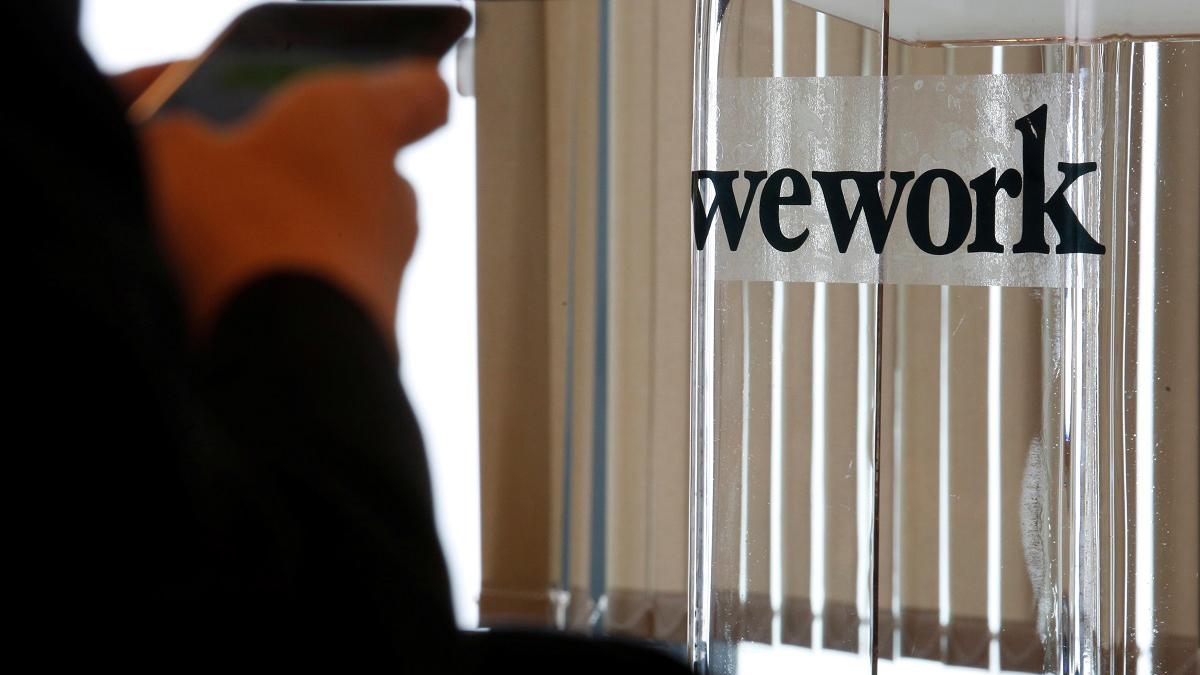WeWork woes pose ominous risk for NYC real estate
Problems at WeWork and other co-working companies may inflict severe pain on the New York City real-estate market.
Co-working businesses, which sign long-term leases and then sublet portions to tenants through a shorter contract, make up 12 percent of office leasing in New York, according to analysts at Morgan Stanley. Commercial vacancies might rise significantly if co-working tenants drop out of the market during an economic downturn, and the companies are forced to pull back themselves as a result.
GET FOX BUSINESS ON THE GO BY CLICKING HERE
“We see two potential drivers: 1) slower absorption/leasing from co-working companies going forward and 2) co-working companies may need to give back space to landlords assuming they face financial or broader macroeconomic headwinds,” analysts Vikram Malhotra and Adam Gabalski wrote.
They concluded that office rents could fall by up to 6 percent and that vacancies could raise by 150 basis points, or 1.5 percentage points, when assuming a slowdown in annual co-working lease velocity to 1 million to 2 million square feet that prompts firms to give back half of the 9 million square feet leased over the past few years.
About 2.3 million square feet has been leased through co-working companies so far this year, compared with about 5 million in 2018.
WeWork is in desperate need of a bailout in order to avoid a cash crunch and potential bankruptcy filing. FOX Business’ Lydia Moynihan and Charles Gasparino have learned the co-working company may receive a $5 billion loan from JPMorgan as early as Friday. If that deal were to fall through, Masayoshi Son’s SoftBank, which has already invested $11 billion, might take a controlling stake in the company.
Such an investment would value WeWork at less than $8 billion, according to Bloomberg. On Sept. 30, WeWork pulled its initial public offering after its market value was estimated at $10 billion to $12 billion – well below the $47 billion at which SoftBank last invested.
The writing has been on the wall for quite some time at WeWork and similar companies.
Boston Fed President Eric Rosengren last month warned that co-working companies will be at risk during the next economic downturn.
“This segment of the economy is likely to be particularly susceptible to an economic downturn, potentially resulting in office vacancies rising more quickly than they have historically,” Rosengren said during a speech at New York University’s Stern School of Business. “Thus, in a downturn, the co-working company would be exposed to the loss of tenant income, which puts both them and the property owner at risk if they cannot make lease payments to the owner of the building.”
Real-estate mogul Sam Zell also had a warning about the model, telling CNBC’s “Squawk Box” that “every single company in this space has gone broke” since the first co-working company was created in 1956.
Still, Morgan Stanley says there are several scenarios in which the worst-case scenario can be averted.
CLICK HERE TO READ MORE ON FOX BUSINESS
Those include landlords being able to convert co-working tenants to direct leases, more gradual fallout from a downturn than expected and mergers among co-working companies that give them more financial flexibility.




















